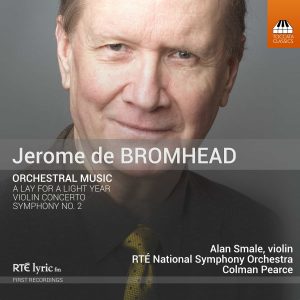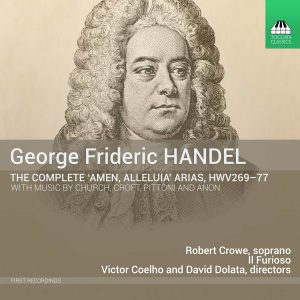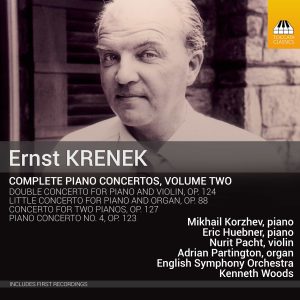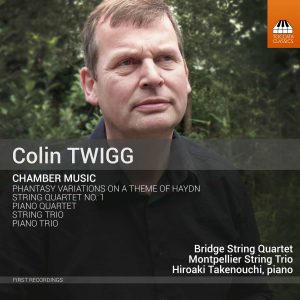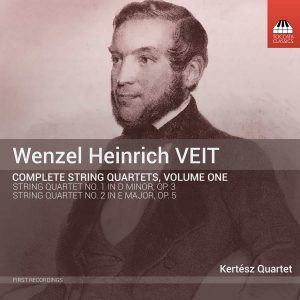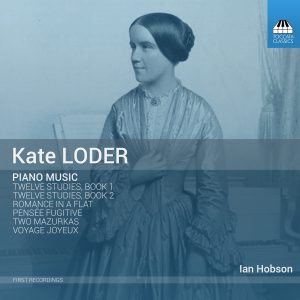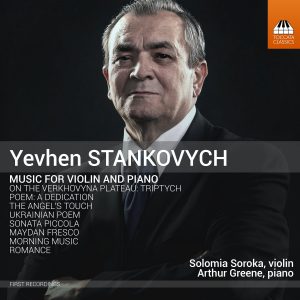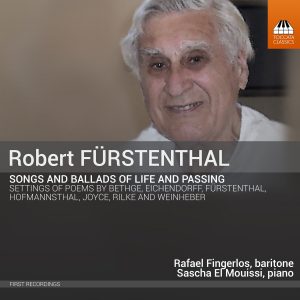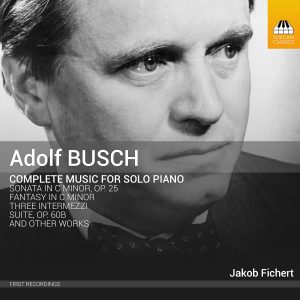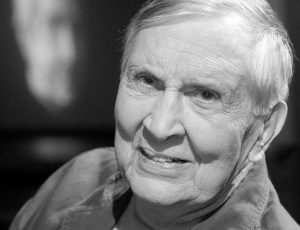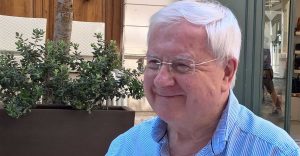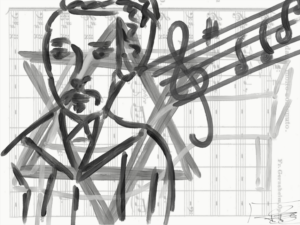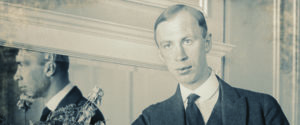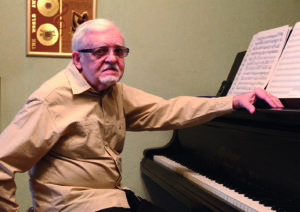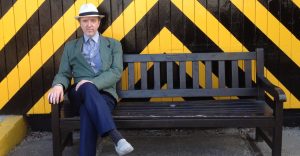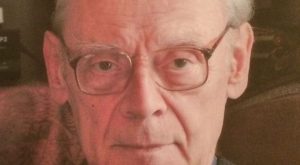Search Results for "Space Wolf: The First Omnibus mp3 torrent" – Page 34
Jerome de Bromhead: Orchestral Music
The vitality of these three works by the Irish composer Jerome de Bromhead (b. 1945) points to the sheer pleasure that their creator takes in writing music. The swirling ebullience of the tone-poem A Lay for a Light Year suggests the scale and energy of the cosmos. The edgy, elegiac lyricism of the Violin Concerto inhabits textures that are brittle and clear like Stravinsky’s. And the more chromatic Second Symphony suggests a vast sense of space behind a glittering foreground of kaleidoscopic orchestral colours.
Alan Smale, violin (Tracks 2–4)
RTÉ National Symphony Orchestra
Colman Pearce, conductor
George Frideric Handel: The ‘Amen, Alleluia’ Arias
Over a period of some twenty years, from the late 1720s, Handel composed a series of virtuoso arias using only the words ‘Amen’ and ‘Allelujah’ as his texts, probably for use in private worship. Here they receive their first recordings, set in a context of contemporary sacred song and instrumental music – and are heard in the extraordinarily dramatic timbres of a male-soprano voice.
Robert Crowe, soprano (Tracks 1, 3–6, 10–12, 14, 17, 19, 21, 22)
II Furioso
Victor Coelho, theorbo (Tracks 1, 3–9, 11, 12, 19, 21, 22)
David Dolata, theorbo (Tracks 1-6, 11–13, 19–22)
Juvenal Correa-Salas, organ
Ernst Krenek: Complete Piano Concertos, Volume Two
Ernst Krenek’s seven piano concertos – four for solo piano, one for two pianos, one with violin and one with organ – form one of the major concerto-series of the twentieth century, but also one of the least familiar. This second instalment in their first complete recording reveals breath-taking bravura writing – in the virtuoso piano technique, the dazzling orchestration and the stylistic integration of serialism and good-natured recollection of Viennese tradition.
Mikhail Korzhev, piano
Eric Huebner, piano (Tracks 4 – 7)
Nurit Pacht, violin (Tracks 8 -14)
Adrian Partington, organ (Tracks 15 -20)
English Symphony Orchestra
Kenneth Woods, conductor
Colin Twigg: Chamber Music
The English violinist Colin Twigg (b. 1960) first came to attention as a finalist in the BBC Young Musician of the Year competition in 1978 and has since made his living as a chamber and orchestral musician. But composition has always been important to him, and his music reflects the richness of his performing career: its roots are in the great composers of the past, synthesised into an articulate voice that is accessible in style and satisfying in its craftsmanship.
Bridge String Quartet
Hiroaki Takenouchi, piano
Montpellier String Trio
Wenzel Heinrich Veit: Complete String Quartets, Volume One
The German-Bohemian composer Wenzel Heinrich Veit (1806–64) – Václav Jindřich Veit in Czech – is one of music’s most unjustly forgotten figures. As these first recordings of his four string quartets will show, he is not only the link between the Bohemian composers of the end of the Classical period and the wave of Czech Romanticism that began with Smetana but also an outstanding composer in his own right. His quartets trace the stylistic evolution of his time: they emerge from a debt to Haydn and Beethoven and embrace Mendelssohn and Schumann on their way to pre-echoes of Dvořák.
Kertész Quartet, playing on original instruments
Katalin Kertész and Jean Paterson, violins
Nichola Blakey, viola
Cressida Nash, cello
Kate Loder: Piano Music
Kate Loder (1825–1904) – a child-prodigy pianist from a family of musicians in Bath, in south-west England – was one of the first students at the Royal Academy of Music in London and one of Britain’s brightest young virtuosi. But Victorian prejudice thwarted a promising career: her well-to-do husband would not allow her to perform in public and so, as Lady Thomson, she became an important teacher and society hostess – and she continued to compose, including two sets of virtuoso studies that sit downstream from Chopin and Schubert.
Ian Hobson, piano
Yevhen Stankovych: Music for Violin and Piano
Yevhen Stankovych (born in 1942) is one of Ukraine’s leading contemporary composers. His music for violin and piano – almost all of it recorded here for the first time – covers a wide range of emotions, from wild highland dances that distantly recall Szymanowski to the plangent, lyrical lament of Maydan Fresco, protesting the deaths of demonstrators in Maydan Square in 2013.
Solomia Soroka, violin
Arthur Greene, piano
Robert Fürstenthal: Songs and Ballads of Life and Passing
Robert Fürstenthal, born in 1920, took the path of many Viennese Jews when Germany invaded and fled to the United States, where he made his living as an accountant; the fact that he had written a few songs in his youth was soon forgotten. The rediscovery, after 35 years, of the woman who had been his first love rekindled not only that flame but also his urge to compose, and songs – achingly lovely songs, laden with an autumnal sense of loss – flowed from his pen from that moment, preserving the spirit of fin-de-siècle Vienna under the Californian sun. He died in November 2016, aged 96, as this album was in preparation, knowing that some of his many songs had at last been recorded and were about to find their audience.
Rafael Fingerlos, baritone
Sascha El Mouissi, piano
Adolf Busch: Complete Music for Solo Piano
Adolf Busch (1891–1952) is generally remembered as one of the great violinists and founder-leader of the peerless Busch Quartet. But he was also an important composer, writing in a tradition coloured by his friend and mentor Max Reger, and his output for solo piano – recorded here for the first time – shows off his natural qualities as contrapuntist and melodist, in music that is both immediately attractive and intellectually rewarding.
Jakob Fichert, piano
Einojuhani Rautavaara, Symphonist
THE FINNISH COMPOSER TALKS TO MARTIN ANDERSON In the light of the death of the Finnish composer Einojuhani Rautavaara, on 27 July 2016, in a…
Rodney Newton’s Spanish Diary
UPDATE: ALBUM AVAILABLE NOW! Day 1, Sunday, 17 September 2017 This afternoon my old friend Martin Anderson and I set out for Málaga to record…
Reflections on the Life and Work of Friedrich Gernsheim – With Some Help from the Young People of Worms
Ever since, some years ago, I heard the State Philharmonic Orchestra of Rhineland-Palatinate performing a symphony by Friedrich Gernsheim (1839–1916), I have been seeking to…
Prokofiev’s Violin Partnerships
At the beginning of October Toccata Classics will release a new album, by the violinist Yuri Kalnits and pianist Yulia Chaplina, of music by Prokofiev…
Obit Nikolai Kapustin
The news of the death of Nikolai Kapustin – on 2 July 2020, at the age of 82 – has sent me scurrying to my…
An Infinity of Traces: Influence Without Anxiety
I often play a kind of party game with friends: each participant will offer a recording of a piece of music by a less-well-known composer,…
A Tribute To Pascal Bentoiu
This Friday, 7 April, the Romanian Cultural Institute in London plays host to the first of two events paying homage to Pascal Bentoiu, one of…
Stay In the Know
JOIN THE TOCCATA NEWSLETTER
"*" indicates required fields
By visiting our site, you agree to our privacy policy regarding cookies, tracking statistics, etc.
